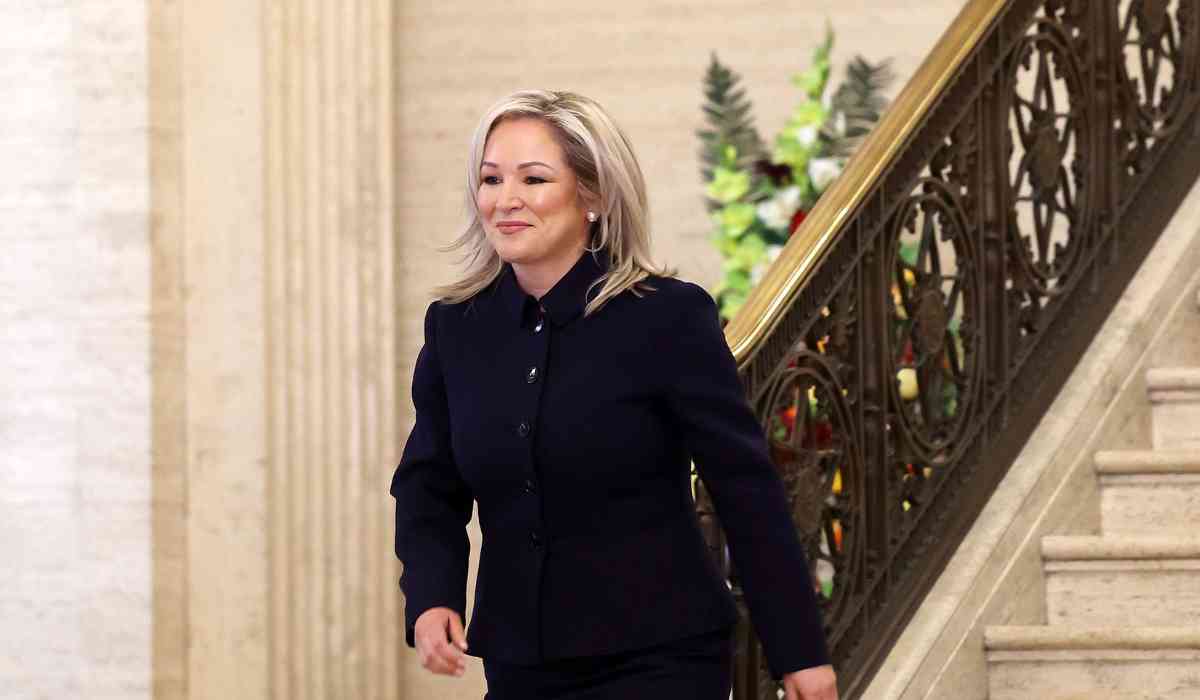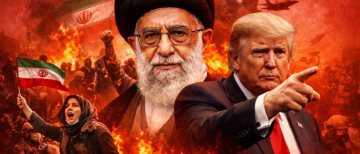In a historic moment following a two-year hiatus, the Northern Ireland government appointed Michelle O'Neill, a prominent Sinn Fein politician, as their inaugural nationalist leader. O'Neill expressed the historical significance of the event, emphasizing that it heralds a new era, a sentiment echoed by her peers.
"This is a historic day and it does represent a new dawn," remarked O'Neill, reflecting on the profound change from her parents' and grandparents' generations. "I am wholeheartedly committed to continuing the work of reconciliation between all of our people. The past cannot be changed or undone, but what we all can do is build a better future," she added.
The Northern Ireland Assembly, in a special sitting, voted to reinstate delegated local government and nominated O'Neill as the first minister, marking a pivotal move after the Democratic Unionist Party (DUP) ended its boycott of the Stormont institutions.
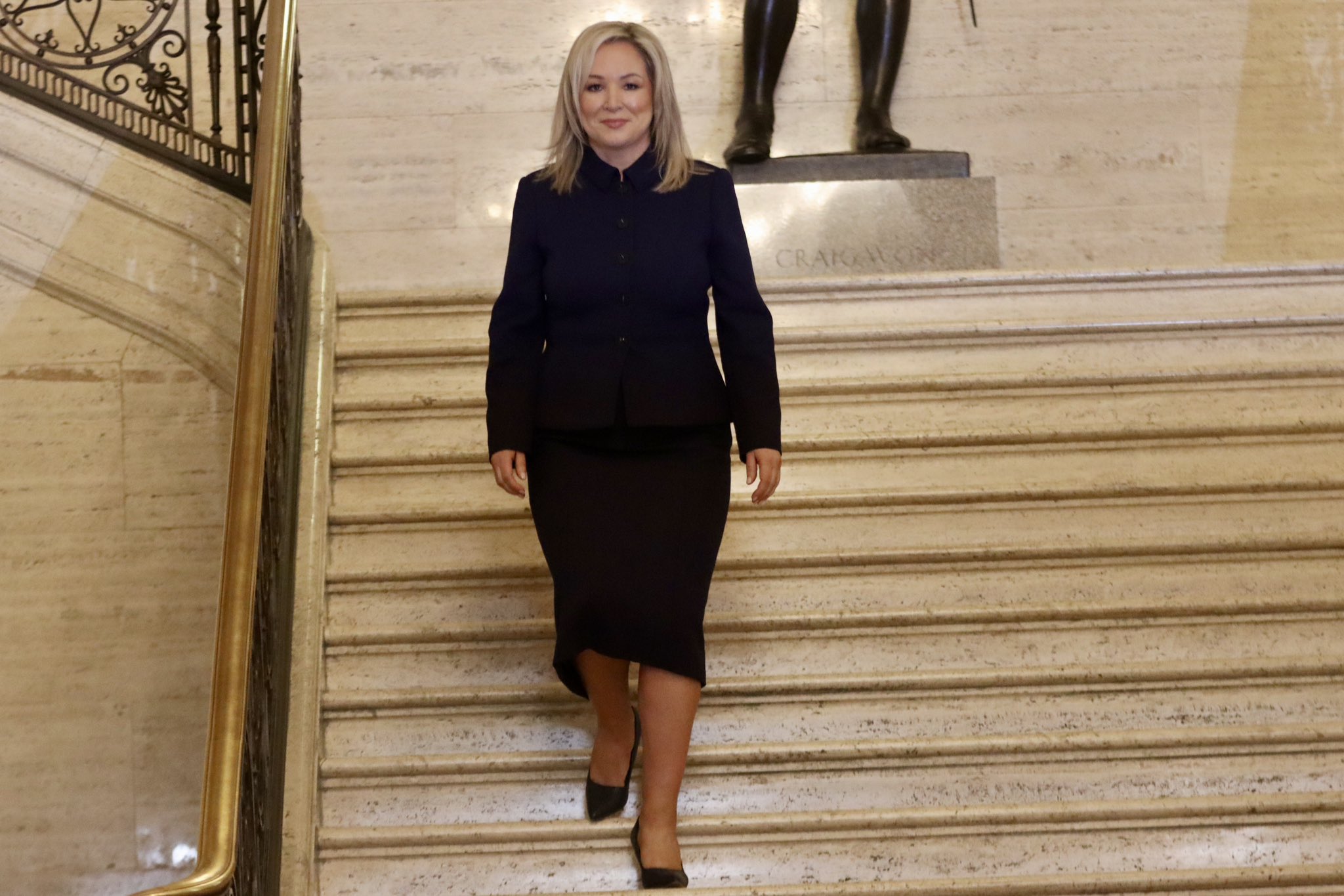
A Landmark Shift in Power Dynamics
The DUP's Emma Little-Pengelly assumed the role of O'Neill's deputy, with other ministerial posts being filled, signifying a significant shift in the power dynamics of Northern Ireland. Under the 1998 Good Friday Agreement, the posts of the first minister and deputy first minister hold equal importance, emphasizing power-sharing.
The appointment of a Roman Catholic pro-Irish unity first minister holds profound symbolism, challenging the historical Protestant-majority state under British rule. This move not only underscores Sinn Fein's position as the largest political party in Northern Ireland but also reflects demographic changes since the division of Ireland in 1921.
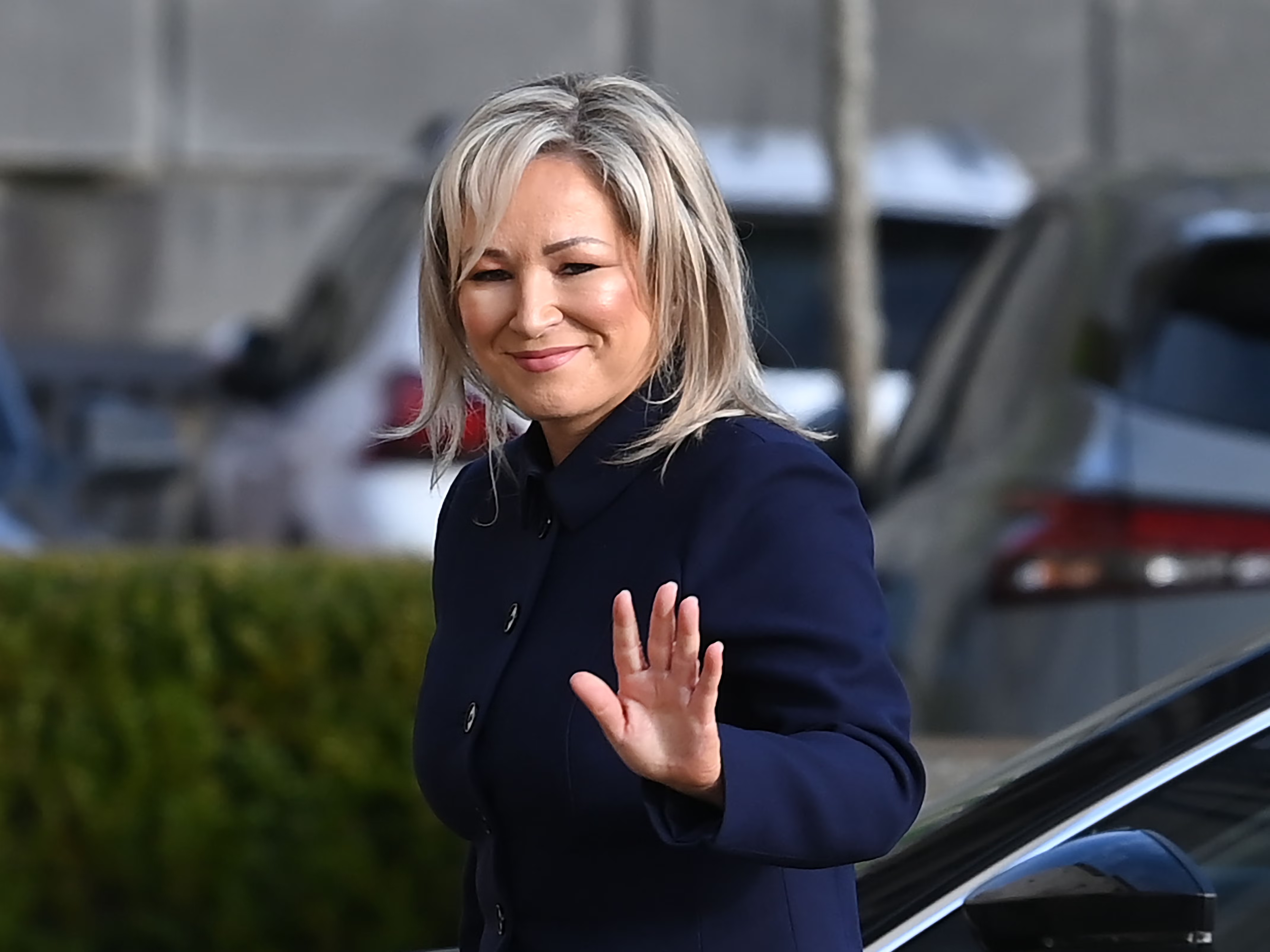
Day of Optimism Amid Challenges
Amidst ongoing industrial disputes and collapsing public services, the 47-year-old pro-Irish unity leader assumes office, urging collective efforts to address challenges. O'Neill, who has been first minister-designate since May 2022, faced delays due to the DUP's assembly boycott.
With Northern Ireland sharing the UK's only land border with the European Union, Brexit-related tensions and trade deals have played a crucial role. The recent agreement between the DUP and London, easing checks on goods crossing the Irish Sea, is accompanied by a £3.3-billion ($4.2-billion) package to bolster struggling public services in Northern Ireland.
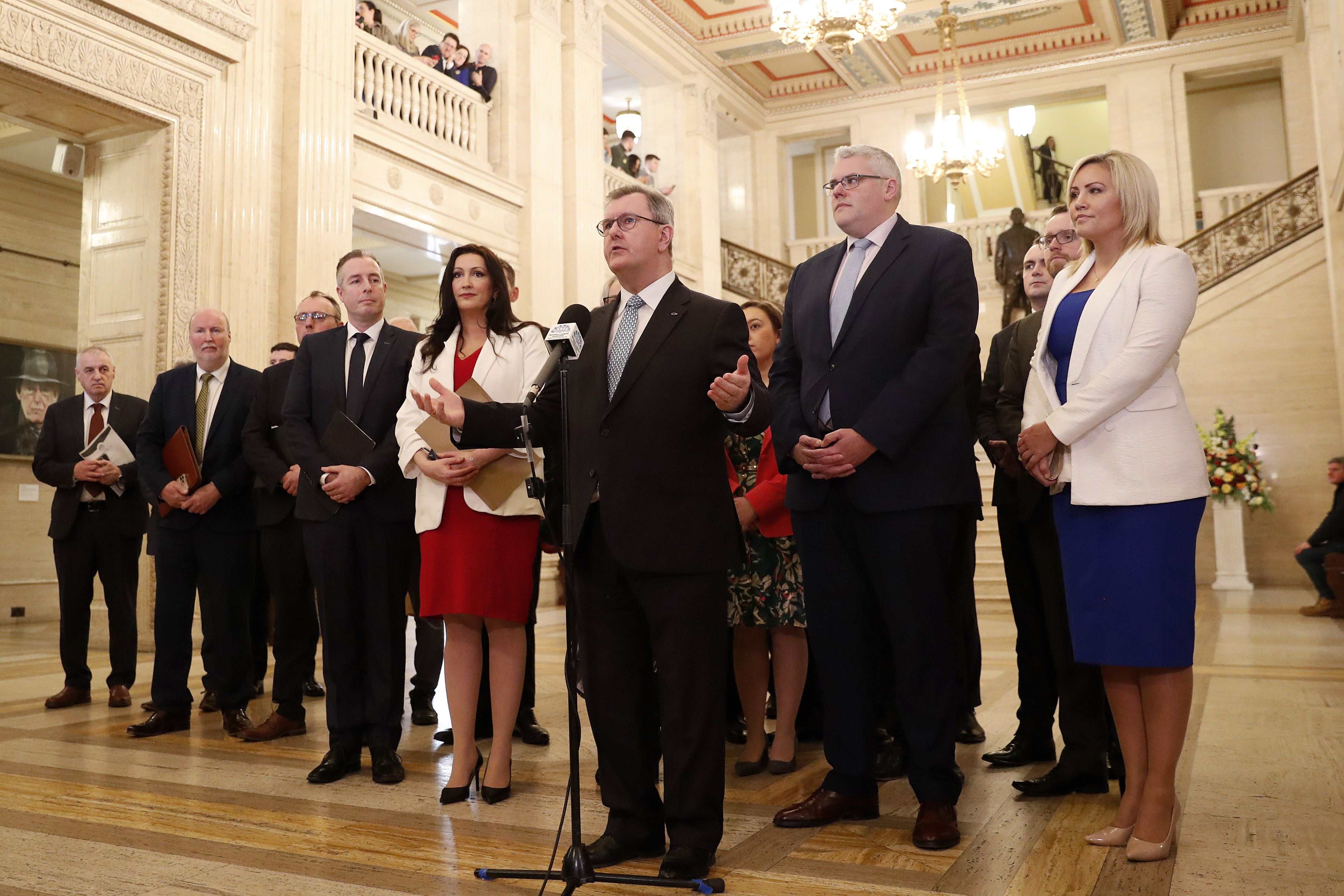
Formalities, Portfolios, and Controversy
Formalities on Saturday included the election of a neutral speaker, party nominations for the decision-making executive, and appointments to ministerial positions. The Alliance party expressed willingness to handle the justice portfolio, while Ulster Unionists are entitled to a ministerial position.
However, smaller, more hardline unionist factions remain opposed to Stormont's return, labelling it a "surrender deal." Despite dissent, former DUP leader Peter Robinson views the agreement as securing "very substantial" progress in safeguarding the union, marking a complex and nuanced landscape as Northern Ireland charts a new course under Michelle O'Neill's leadership.
© Copyright 2024. All Rights Reserved Powered by Vygr Media.

